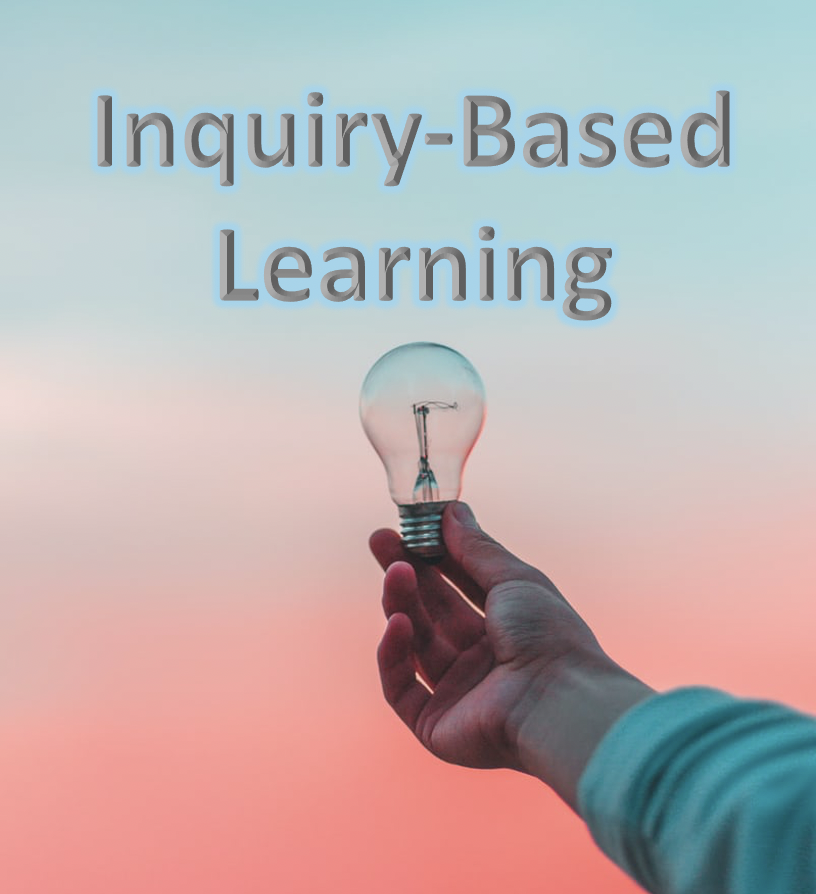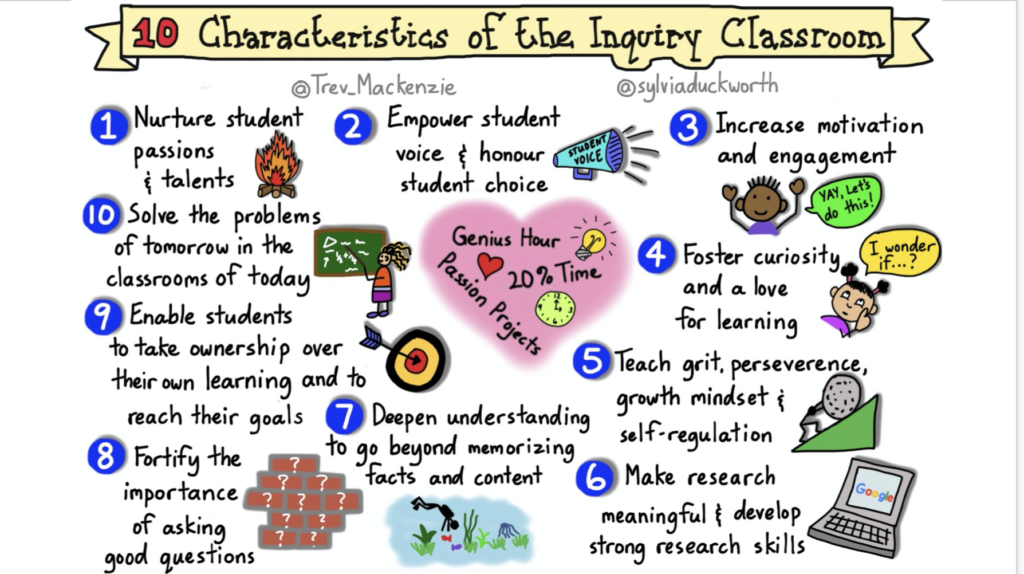
Today we had the pleasure of working with guest speaker Trevor MacKenzie. Trevor is a teacher in Victoria who is known for his passion and work with inquiry-based learning. It was kind of a coincidence that Trevor was our guest speaker this week as I just followed him on Instagram a few days ago and was telling my partner about his great work. I did not realize at the time that he was going to be out guest speaker for today so I was pleasantly surprised when I got to class. I really enjoyed todays session and felt like there was so much valuable information.
One thing that Trevor said that really stood out to me is that engagement matters. Student engagement is key and you should constantly be scanning the classroom to check for student engagement and interest. Trevor also stated that the power of the visual is a really great way to capture this engagement. He said that provocations, which can be videos, pictures, gifs, field trips, compelling text etc., are a critical way of grabbing student interest, stirring curiosity, sparking wonder in a particular topic, and getting people thinking. He showed us some great examples of provocations such as the one that reflected dictatorship. After the introduction to provocations, we talked about thinking routines and the questions you can ask students about provocations. Trevor’s model consisted of these questions: What do you notice? What do you wonder? What do you know? I think this is a really great way to get everyone involved and actively engaged in the process of wondering before introducing prior knowledge. It allows all students the chance to think, question, and marvel at something before accessing prior knowledge from the class, and it gets everyone engaged and participating.
A question that was posed by a fellow classmate also really caught my attention. They asked how inquiry-based learning affects students who have learning disabilities. I thought that this was a very interesting question and I had not thought about it. Trevor had a really cool answer, he said that in inquiry-based learning it allows us to sit down with individuals and get that one-on-one time with them. We are actually better able to cater to individuals specific needs as inquiry-based learning in conducive to individualized learning and open to working through projects in different ways. An even cooler note that he mentioned was that inquiry often helps “dull” disabilities. Through this type of learning, students learn how to be independent and how to cope with their personal struggles. It allows them to figure out how to work around, or with, their disabilities so that they can succeed despite these struggles. I thought this was so cool as classrooms are full of diverse learners and it is important that we do our best to support all of them.
Trevor provided us with some great resources today and one that I really liked was the “Characteristics of the Inquiry Classroom” poster. I found this poster to be a great tool for personal reflection as well as a great source of inspiration. It helps us think critically about what some of our strengths may be and what we can improve on and work towards. It is also a great way to easily see some of the benefits that come out of inquiry-based learning. This poster really promotes a growth mindset for me personally which I think is so important as a future teacher! As future teachers, we want to model having a growth mindset and constantly work towards bettering ourselves and expanding our knowledge. This poster does exactly that for me! I also really appreciated the break out room for this section and being able to talk with fellow students about what they feel some of our strengths are and where we would like to improve. After returning from these breakout rooms, Trevor also mentioned how these characteristics are used to develop 7 specific competencies in students: critical thinking, collaboration, communication, curiosity, creativity, self-control, and empathy. These competencies really stuck out to me and I can see myself really utilizing them in the future. I envision posters of these around my classroom as well as projects that work to develop these competencies in my students. This resource really struck a chord with me and inspired me.

“Enable students to take ownership over their own learning and to reach their goals.”
– Trevor MacKenzie & Sylvia Duckworth
The last thing I want to touch on in this blog post is some resources either by Trevor himself, or that he suggested. I will briefly list them here for future reference and for any others who may want to find/use them!
- The Power of Making Thinking Visible: Practices to Engage and Empower All Learners by Ron Ritchhart and Mark Church
- Inquiry Mindset: Nurturing the Dreams, Wonders, and Curiosities of Our Youngest Learners by Trevor MacKenzie and Rebecca Bathurst-Hunt
- Dive into Inquiry: Amplify Learning and Empower Student Voice by Trevor MacKenzie
- Types of Student Inquiry slides by Trevor MacKenzie
- Trevor’s website
- Rebecca’s website
Photo Credits: Header photo by Diego PH on Unsplash
